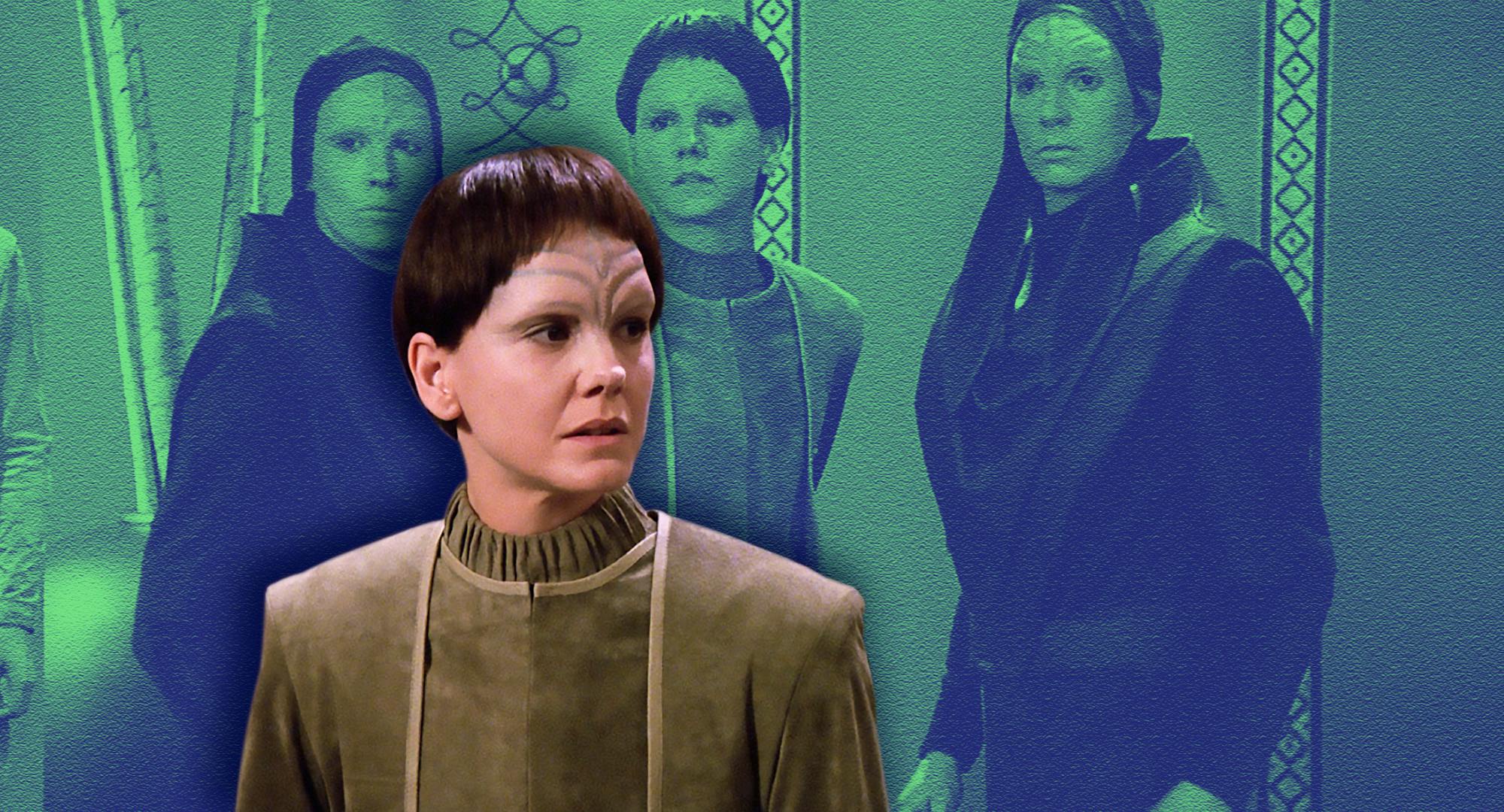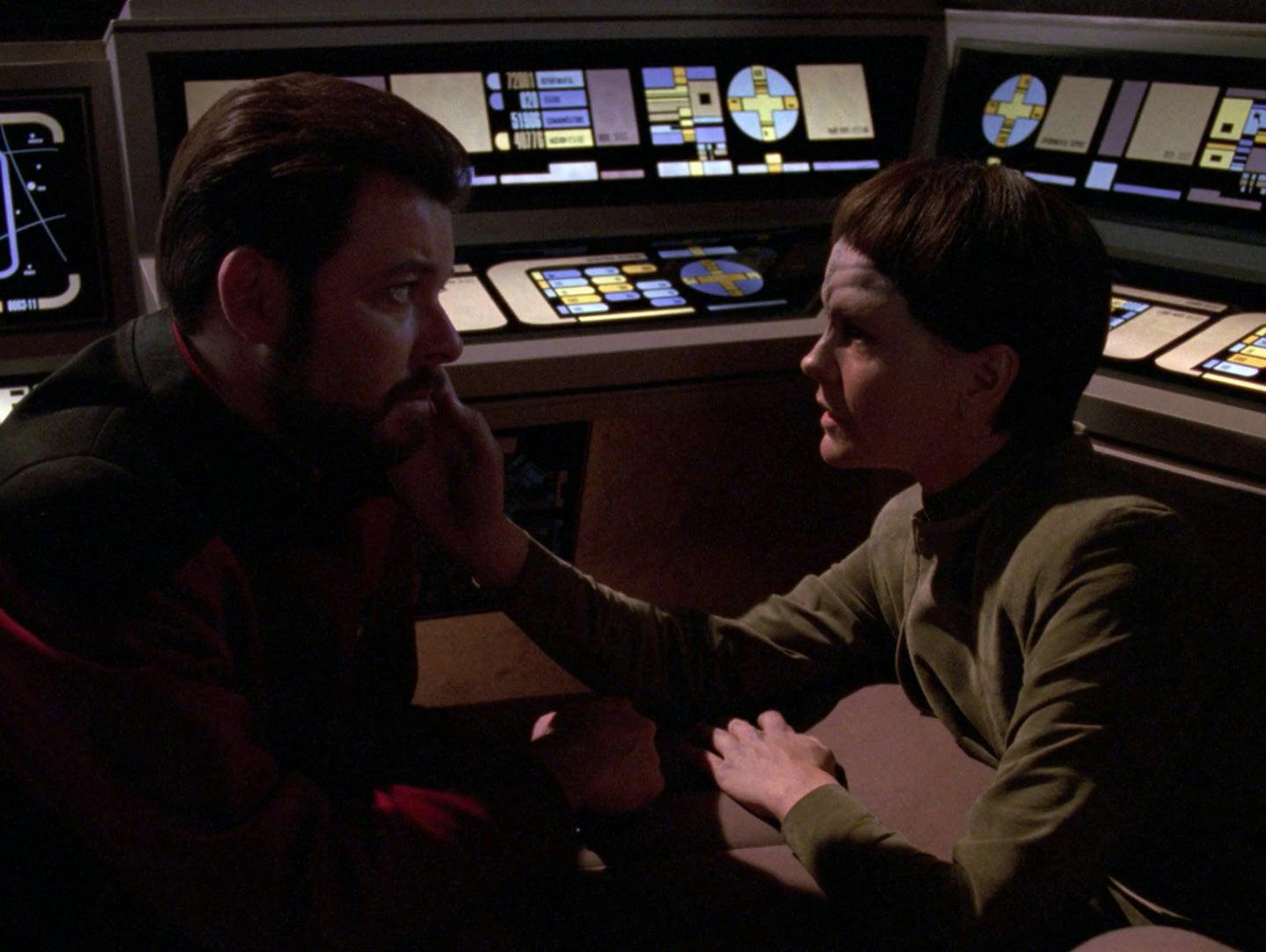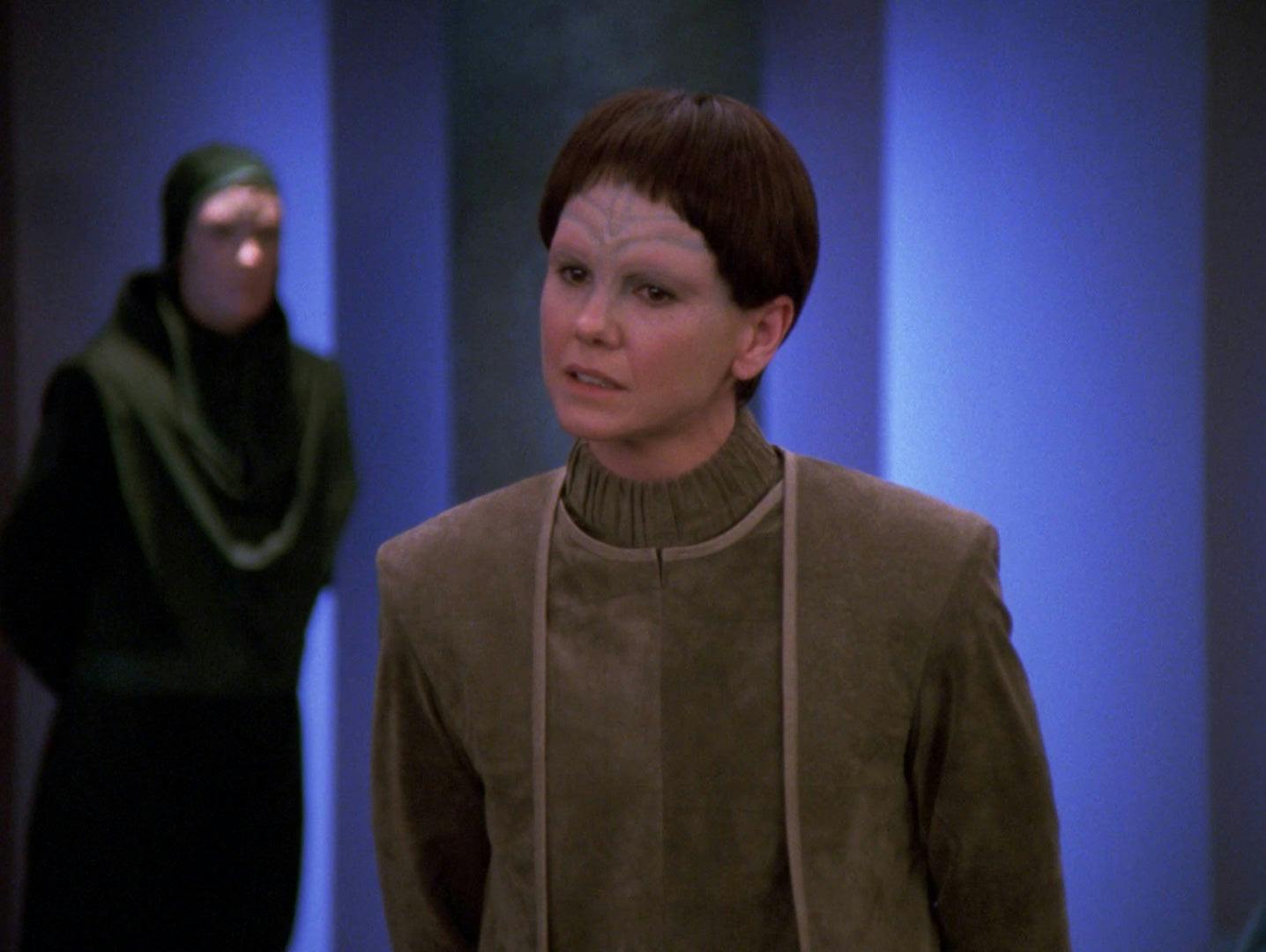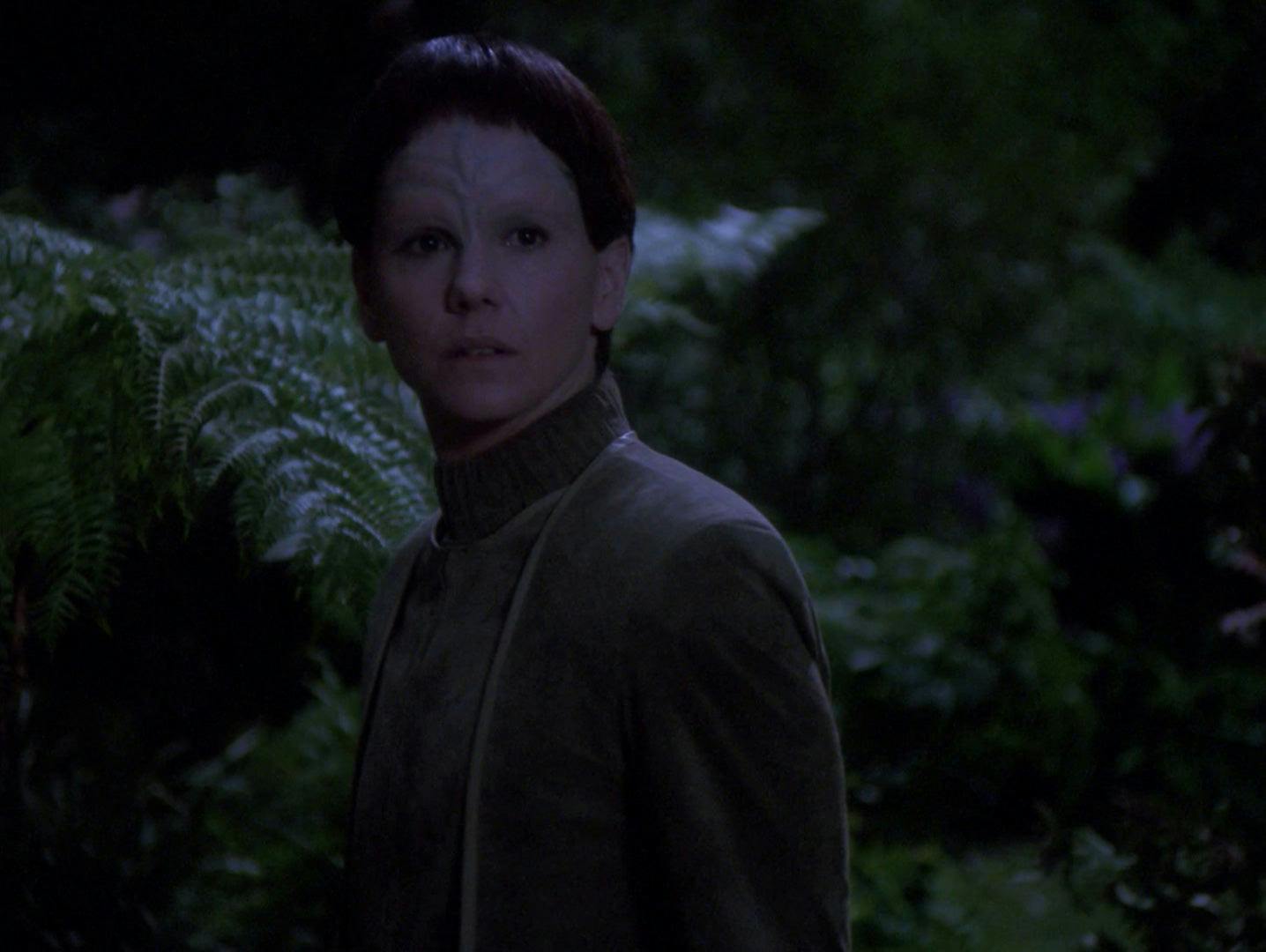Published Jun 23, 2020
The Next Generation's Call for Equality
A look back at "The Outcast." ????

StarTrek.com
In the 24th century there will be no hunger, no greed, but gender will still be a rigid social construct. Most of the time. In The Next Generation’s 1992 episode “The Outcast,” writer Jeri Taylor challenges our pre-existing ideas of gender and sexual orientation. The episode offers a declaration of independence for LGBTQ+ people, making it no less than revolutionary.
For the J'naii, a humanoid species, heterosexuality and gender conformity are crimes. By flipping the script, Taylor challenges our own fears of the Other. Soren (Melinda Culea) feels female, although it is not allowed. She is also attracted to Riker, who identifies as a male, which her society considers to be “primitive." By giving Soren the chance to rebel against her oppression, the episode voices a queer plea to free sexual “others”. As Taylor declared, this was, “a gay rights story. It absolutely, specifically and outspokenly dealt with gay issues”.

StarTrek.com
The allusions are quite obvious, as they should be to convey a clear message. Soren is called “sick” and “deviant”, both homophobic slurs in our world. Soren’s society wants to cure her from her “perversion”, and the psychotactic therapy they suggest for her is an apt metaphor for conversion therapy. After Soren undergoes the abusive treatment, she returns to captivity willingly, believing she was sick. While some LGBTQ+ fans (sometimes fondly known as "Gaylaxians") were offended by the unsuccessful rescue attempt, it serves to emphasize the tragedy. Soren was robbed of her individuality and memories. Her reprogramming illustrates the dehumanizing effect of conversion therapy, which was little known outside of the gay community at the time the episode aired. Soren’s bleak end is a powerful warning: we have to fight for equality, or we will be silenced.
Star Trek is often criticized by LGBTQ+ Trekkies for having few moments of LGBTQ+ representation. For years the queer fandom longed for gay characters and storylines, which were scarce. The absence of gay portrayals made “The Outcast” carry a measurable burden of expectation, which was not met by Gaylaxians, who were longing for some hand holding rather than just talk.
It is important to bear in mind the traditional, “family values” oriented television landscape of the early 1990’s. The first lesbian kiss on American television was aired just a year prior, on LA Law. “The Outcast” aired during the conservative George H.W. Bush administration, at the height of America’s “gay panic” caused by the AIDS epidemic. It’s not until two years later, with Clinton winning the election, that the Don’t Ask, Don’t Tell policy is born. The end of 1992 saw the foundation of The National Association for Research & Therapy of Homosexuality (NARTH) an organization that promotes conversion therapies.

StarTrek.com
“I am female. I was born that way. I have had those feelings, those longings, all of my life.” - Soren
At the heart of the episode is Soren’s passionate speech while on trial, a call for “understanding” and “compassion.” Her voice is heard in a room full of fellow J'naii, who remain silent yet interested. Some of them perhaps never gave any thought to the discrimination in their society. Riker looks at Soren proudly as she fights to her right to exist as she is. TNG coined “love is love” almost 30 years ago, with Soren’s touching plea: “What makes you think you can dictate how people love each other?”.
This speech is also where “The Outcast” gets it wrong. While this episode explores the hardships of prejudice, it is nonetheless essentialist. Soren's "born this way" argument suggests that she is not to blame for her “otherness." Meaning, if given the choice, she would maybe rather be “normal."
One of the episode’s most beautiful moments is the coming out scene. Everyone who has ever come out after years of living in fear would find Soren’s coming out to Riker moving. Soren reveals her secret slowly, since she is “taking a terrible risk”. She witnessed a hate crime at a very young age, which continues to terrify her. Her everyday struggle is finally met with some ease: Riker’s acceptance proves that even when our own culture shuns us, we are still worthy of love.

StarTrek.com
“The Outcast” is far from perfect, but still offers hope and a sub-narrative of progress. Klingons, much like some humans, prefer clear cut structures. The androgynous nature of the J’naii makes them threatening to Worf. Both Deanna Troi and Data ask him why he is so upset by the J’naii, but he cannot explain: “They just do.” There isn’t a reason because hate is never logical. Later Worf volunteers to join Riker on the rescue mission. He may dislike the J’naii, but he won’t abandon someone in need. And if the biased Klingon can change his mind, maybe we humans can, too.
Star Trek's Jonathan Frakes Shares His Thoughts on the Star Trek Universe
Nitzan Pincu (she/her) is a freelance journalist and radio broadcaster based in Tel Aviv. She is currently hosting RIOT! on kzradio, a show dedicated to exploring revolutionary music, and is LGBTQA+, feminist and anti-racist.
